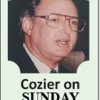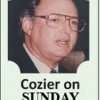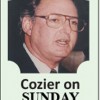
Talent on display in CPL
ONE of the objectives of the inaugural Limacol Caribbean Premier League was to provide young West Indies players a showcase for their talents, as the fashionable phrase has it.

ONE of the objectives of the inaugural Limacol Caribbean Premier League was to provide young West Indies players a showcase for their talents, as the fashionable phrase has it.

Given the lucrative contracts open to them, leading West Indians are unavoidably playing too much for their own good and, by obvious extension, the good of the West Indies cricket.

THERE were a host of inevitable questions hanging over the Caribbean Premier League when Julian Hunte, then West Indies Cricket Board (WICB) president, announced last year that it was selling its annual Twenty20 tournament to Verus International, a wealth management organization based in New York and Barbados.

THERE were certain images from the Beausejour Stadium during the final ODIs against Pakistan last week that hinted at a West Indies team even more troubled than the upshot of five months non-stop cricket and the final 3-1 scoreline indicate.

With every passing ODI over the past eight months – in Bangladesh, India, Australia, England and back in the Caribbean – the West Indies’ problems multiply.

The selectors have given an extraordinary vote of confidence to the West Indies squad for the opening ODIs of the brief series of five against Pakistan, the first two of which, today and Tuesday, bring international cricket back to Guyana for the first time since 2011.

Kieron Pollard was somewhat hasty in his assertion following the West Indies’ tight victory over India in the opening round of the current Celkon Mobile Cup at Sabina Park last Sunday.

By Tony Cozier It only needed a quick glance around Sabina Park on Friday to understand why India are here for the ODI triangular with the West Indies and Sri Lanka rather than the two Tests, three ODIs and one Twenty20 against Sri Lanka as stipulated on the International Cricket Council’s Future Tours Programme (FTP).

To West Indians of a certain vintage, among whom I now inevitably count myself, the name Dicky Rutnagur evokes memories of India’s tours of the West Indies long before the advent of abbreviated cricket and, if more forgettable, of the monumental upset of Kapil Dev’s team in the 1983 World Cup at Lord’s.

Switching the captaincy for the 50-overs game from Darren Sammy to Dwayne Bravo, chief selector Clyde Butts explained that he and his panel believed it was “best to freshen the leadership of the team in this format.”

THE most unsatisfactory outcome in cricket is that determined by the Duckworth-Lewis method.

IT was the type of contest that was a metaphor for the fascinating unpredictability of the two teams.

There was one topic of conversation in the VIP lounge of Dhaka’s Hazrat Shahjalal International Airport on April 9, 2000, as players and commentators assembled for flights to their scattered destinations following the Asia XI v World XI fund-raising match.

EXASPERATED by their team’s weak record in the 2013 regional Super50 and first-class tournaments,

ACCORDING to Clyde Butts, he and his selection panel went for Dwayne Bravo to take over from Darren Sammy as captain for next month’s Champions Trophy and the later ODIs against India, Sri Lanka and Pakistan at home because “we believe it is best that we freshen the leadership of the team in this format.”

THERE will, inevitably, be a hue and a cry over the replacement of Darren Sammy as captain with Dwayne Bravo for next month’s Champions Trophy in England, confirmed by some West Indies Cricket Board (WICB) directors who endorsed the selectors’ recommendation at their meeting in Roseau on Friday.

The reaction to Chris Gayle’s bombardment in Bangalore last Tuesday was global and suitably awe-struck.

CRICKET’S a funny game. It was the hackneyed cliché trotted out again on Thursday and Friday nights after the semi-finals of the regional Super50 under the lights at Kensington.

It’s not difficult to imagine the impact on the embryonic Caribbean Premier League of the Barbados Central Bank’s warning last week on the status of Verus International, the League’s owners.

Ian Chappell, one of the most perceptive of former players, has set off an informed discussion on the social media with his reasoning for what he sees as the decline in Australian batsmanship.
The ePaper edition, on the Web & in stores for Android, iPhone & iPad.
Included free with your web subscription. Learn more.